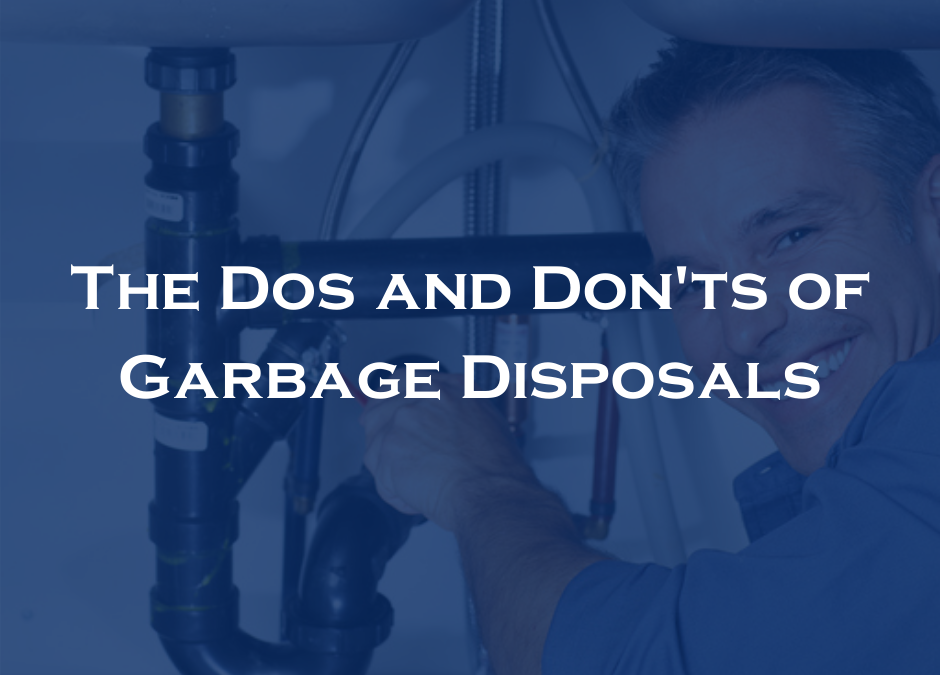Clogged drains are never fun, they are to put it mildly a major inconvenience and garbage disposal repair can be a costly proposition. Fortunately, most of these troubles are unnecessary, and garbage disposal care is extremely easy. If you treat your garbage disposal well, it will in turn treat you well. With that in mind, lets look at some of the dos and don’ts of garbage disposals, with Five Star Plumbing, a plumbing company in Harford County.
Do’s:
- Do keep your disposal clean. You can achieve this by pouring a little dish soap inside and letting it run for a minute or so with some cold water after washing dishes.
- Do run it regularly. Frequent use prevents rust and corrosion, it will assure all parts stay moving and prevents obstructions from accumulating
- Do grind your food waste with a strong flow of cold water. This will cause any grease or oils that may get into the unit to solidify, so they can be chopped up before reaching the trap
- Do grind certain hard materials such as small chicken and fish bones, eggshells, small fruit pits, etc. A scouring action is created by these particles inside the grind chamber that cleans the walls of the disposal
- Do cut large items into smaller pieces. Put them into the disposal one at a time instead of trying to shove a large amount in at once
Don’ts:
- Don’t grind glass, plastic, metal, or even paper
- Don’t grind anything combustible
- Don’t grind cigarette butts
- Don’t pour grease, oil, or fat into your garbage disposal or drain. Grease will slowly accumulate and impede your garbage disposal’s grinding ability as well as clog drains.
- Don’t use hot water when grinding food waste. This will cause grease to liquify and accumulate, causing clogging
- Don’t grind extremely fibrous material like corn husks, celery stalks, onion skins, and artichokes. The fibers can tangle and jam the disposal, blocking drains
- Don’t turn off the motor or water until grinding is completed. When grinding is complete, turn off the disposal first. Let water continue to run for at least 15 seconds, which will flush out any remaining particles. Then turn off water
- Don’t put too many potato peels down the garbage disposal. The starches will turn into a thick paste and may cause the blades to stick
- Don’t put large amounts of food down the disposal. Feed food into the disposal a little at a time with cold water running; this will help the food scraps flow down freely through the drain pipes and plumbing
- Don’t grind large animal bones
- Avoid putting coffee grounds in. They can eventually accumulate in drains and pipes, which can cause clogs
- Don’t use any harsh chemicals such as bleach or drain cleaners. They can damage the blades and pipes. Borax is a great alternative to helping clean disposals
Why should I have a sump pump
While the benefits to a sump pump are pretty clear, some properties may need these devices more than others. We recommend having a sump pump installed if any of the following points is true:
- You live in a climate that receives heavy snow or rain. In the northeast area we get more than a fair share of moisture year-round. Unlike desert climates out west, basements here are very susceptible to flooding.
- Your home is built on a flood-prone spot. Poorly draining soil, low-lying properties, and homes surrounded by hills are more likely to experience rising groundwater levels during heavy rains, snowstorms, and spring runoff.
- You’ve had water problems in the past. If your basement has flooded before, or you regularly struggle with high basement moisture levels, it would be very smart to install a sump pump here
- You have a finished basement. Even if your home isn’t categorized as a high-risk property, consider protecting your underground living space with an affordable sump pump.
Dealing with garbage disposal issues in Harford County?
If you are having trouble with your garbage disposal and just can’t seem to get it working, reach out to Five Star Plumbing today! We are locally owned and operated, and we’ve been in business since 1991. We’re available to help 7 days a week, with no overtime charges in both Baltimore County and Harford County.

